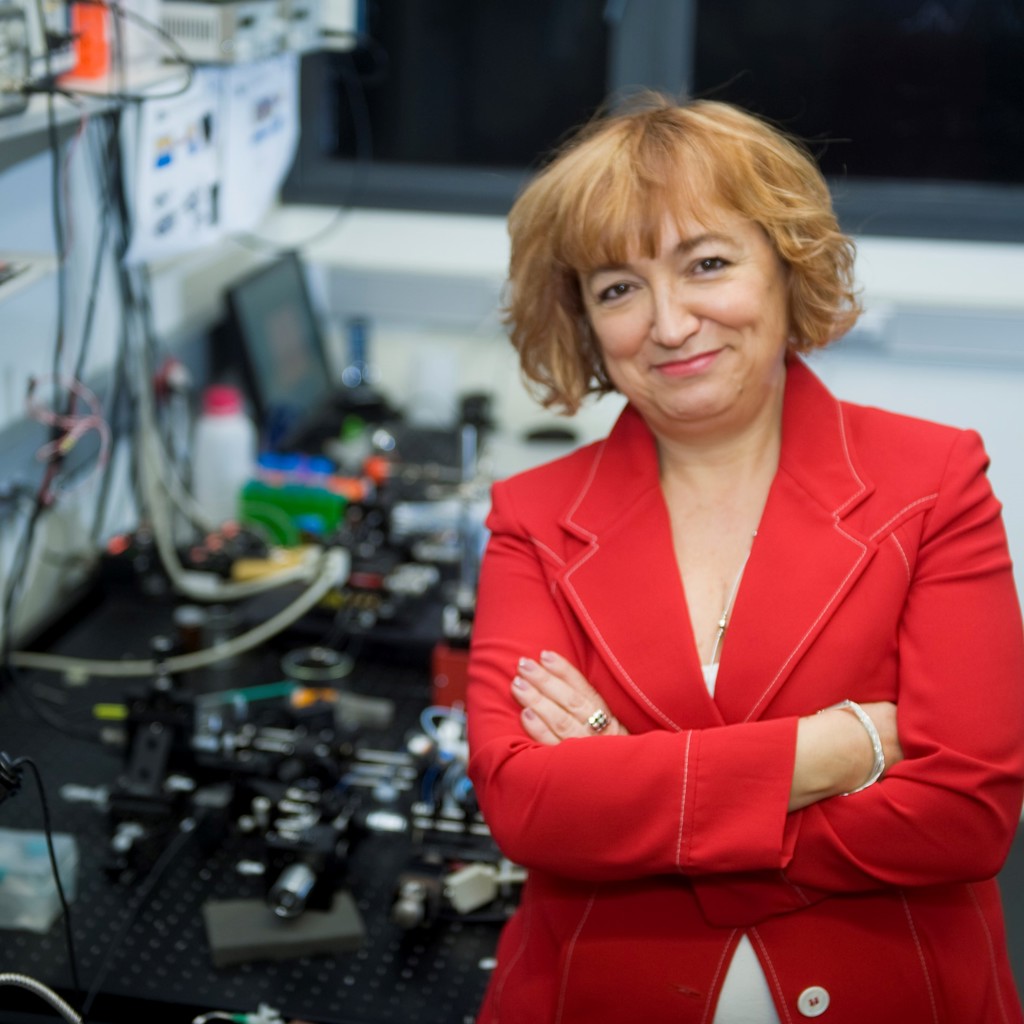Laura Lechuga
Institut Català de Nanociència i Nanotecnologia, SpainFor significant research leadership and pioneering development of novel and compact biomedical sensors based on advanced integrated photonic techniques and plasmonic devices, combining science with real-life applications and technology transfer.

“Modern diagnostics urgently need novel analytical tools that can enable quick, accurate, sensitive, reliable and cost-effective results so that appropriate treatments can be implemented in time, leading to improved outcomes,” says Laura Lechuga. Luckily, her research focuses on developing highly sensitive optical biosensors for early, label-free and rapid diagnostics on portable platforms for operation outside the lab. These developments are helping to solve today’s problems and meet the demands of an ageing society.
Although firmly established in her research now, it was not always obvious to her that this was what she wanted to do. In high school, she became fascinated with how the human body works at the molecular level. This led her to pursue an undergraduate degree in chemistry and she was convinced that a PhD was the right option for her. She did her PhD at CSIC in Madrid, Spain, and then obtained a postdoctoral position in the Faculty of Electrical Engineering and MESA Research Institute at the University of Twente in the Netherlands. She notes that is was important to her to have the international experience.
Upon returning to Spain after her time at the University of Twente, she obtained a permanent position at CSIC. She sees this as a turning point in her career as a permanent position in Spain allows a researcher to establish an independent research group and guarantees a stable salary.
These achievements did not come without obstacles. Laura remembers that one of the main obstacles was the need to constantly demonstrate her value and performance as a woman in science. She countered by focusing on recognition of her work and not for being a woman doing the research. Today, she says that she likes to host a high number of female researchers and students in her group in order to support them as much as possible. She hopes that this will help them avoid some of the gender bias she experienced.
Becoming an OSA Fellow was a special step in her career because of its international recognition. She says that OSA has provided a “nice environment of colleagues and a feeling of belonging” as well as helping her to stay update-to-date on state-of-the-art technologies in Europe and around the world.
“Work hard, very hard, and be persistent,” she says. “Be prepared to feel frustrated, find dead-ends, and reinvent yourself and your research.”
Profile written by Jeanette Gass
